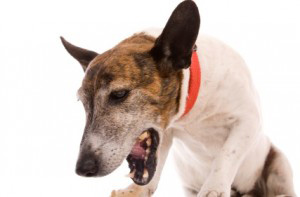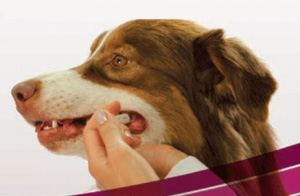So you are finally getting to escape winter for a retreat in the heat!
The boarding kennel says your dog needs vaccination for Kennel Cough in order to stay with them.
 So, what is Kennel Cough?
So, what is Kennel Cough?
Most of the diseases we give vaccinations against are life-threatening, such as rabies or parvo.
Kennel Cough, or Bordetella, is more just a pain in the butt. Its other name is Canine Contagious Cough, and it is just that: contagious. Extremely. It will spread through a group of unprotected dogs like wildfire, once one of them starts coughing it into the air they all breathe. And once they have it, it can hang on for weeks, even months.
The secret of Bordetella’s success is its own little minion: a virus sidekick. If it were just the Bordetella bacteria by themselves, we could fight them off with an antibiotic. But with its little virus friend adding its share of damage to the airway linings, the cough is not going to clear until the immune system has dealt with the virus too.
The Minions:
The core vaccination we give dogs gives protection against a couple of these respiratory viruses, so being up-to-date on the core vaccine is important too:
- Adeno-1 respiratory virus gets some cross-protection from vaccination for the Adeno-2 Hepatitis virus
- The respiratory virus Parainfluenza is part of the core vaccine
The Boss:
The bacterial part of Kennel Cough, Bordetella bronchiseptica, is the cousin of the bacteria that causes Whooping Cough in children, Bordetella pertussis – and you can see the family resemblance in that a kid’s bout of Whooping Cough hangs on forever just like a dog’s bout of Kennel Cough. However, there is no cross-infection between species – your dog can not get your kid’s cough, and your kid can not get your dog’s cough!
Vaccination for the bacteria comes in 2 forms:
- Systemic immunity: this is where an injection under the skin induces the production of free-floating bloodstream antibodies (IgG). The level of the antibodies does not peak until 2 weeks after an injection, so this one can not be given right before you leave on holiday. And, this type needs a booster 3-4 weeks after the first shot to turn some of the antibody-producing cells into long-lived memory cells. The problem with systemic immunity is that it recognizes an infection and kicks in its protection after the Bordetella has already colonized the nose and throat.
-
Mucosal immunity: this type involves putting de-activated bacteria right into the nose and throat (nasal spray, or a squirt in the mouth). This induces a different type of antibody, the type that is actually present on the surface of the nose and throat lining (IgA). This sort of protection is at good levels in only 48 hours after the vaccination. I prefer this type because it is a “first-line” defense, not letting the virus-bacteria team even get a toe-hold in the nose and throat.
You and your dog do not want to suffer through weeks and weeks of a severe cough; and your boarding kennel operator does not want to field a lot of calls from upset pet parents whose pet came home coughing. That is why they want all their doggy guests protected.
Bordetella is also happy to spread itself around any other places where dogs congregate: the groomer’s, the dog park, a dog show or event; it can even pass from dog to dog during the regular sort of sniffing dogs do when they meet each other on a walk.
Since you never know when Kennel Cough is going to go gallivanting once again through the local dog population, it is a good idea to keep your dog’s protection, the Bordetella vaccination, updated every year!

